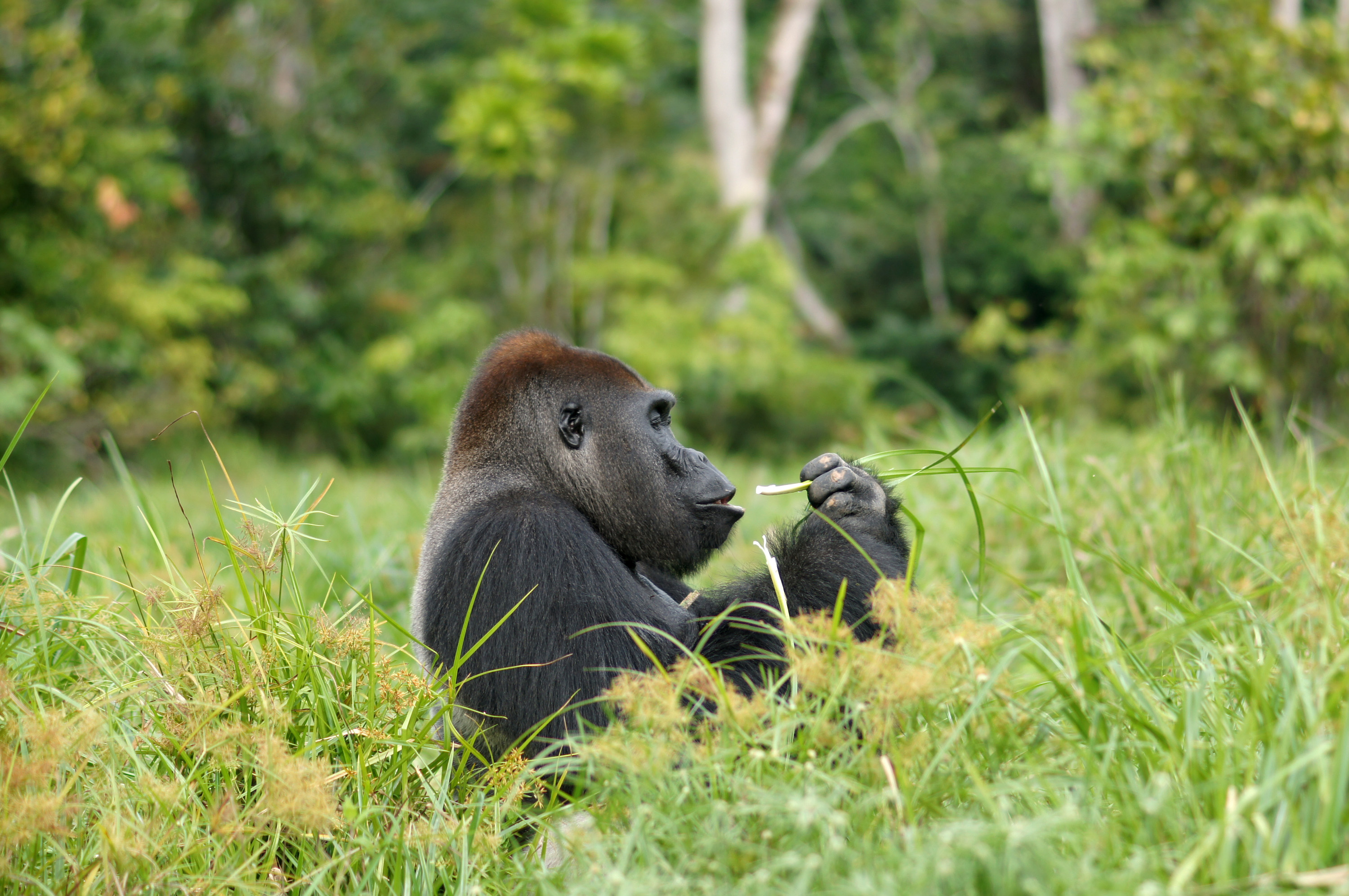Providing stability through conservation in the Congo Basin rainforest

Related topics
Environment and green economydate: 15/10/2020
The Trinational Sangha (TNS) is one of the last true wildernesses in Africa. Straddling the border of Cameroon, Congo and Central African Republic (CAR), it comprises 3 national parks –Lobéké in Cameroon, Nouabalé-Ndoki in Republic of Congo and Dzanga-Ndoki in the Central African Republic – in a core area of 7 500 km2, with a forested buffer zone of 18 000 km2. Nominated a UNESCO Natural World Heritage Site in 2012, the TNS is considered by many to be the ‘jewel in the crown’ of the Congo basin’s protected area network; not only does it harbour an exceptional diversity of flora and fauna but also, contrary to most other forest sites, the wildlife is easy to observe. Iconic and threatened species such as the forest elephant, gorillas, chimpanzees and bongos are regular visitors to the forest clearings (locally known as bais) in search of vital mineral salts. This makes for unrivalled wildlife viewing with enormous potential for generating much-needed revenue for the park and its neighbouring communities.
Equally distinct are the local Ba’Aka indigenous forest people living a semi-traditional hunter-gathering lifestyle in the buffer zone. Their unrivalled knowledge of the forest makes them a uniquely important partner in the management of the site. The protected area management structures help the Ba’Aka, historically a marginalised group, to assume their rightful place in society by protecting their human rights, facilitating access to health and education, and supporting the development of natural resource-based sustainable livelihood activities. On the CAR side of the TNS almost a third of the 250 park employees are from the local Ba’Aka and Sangha-Sangha indigenous populations. Their skills are essential to the core park management activities of patrolling, ecological monitoring and tourism.
However, despite the remoteness of the area the TNS faces growing pressures linked to the opening up of the surrounding forest to industrial logging activities. The expanding network of logging roads allows increasing numbers of commercial bushmeat hunters, elephant poachers and artisanal gold miners to penetrate deep into the forest, including inside the boundaries of the national parks. These illegal activities threaten the outstanding value of the site and also undermine the livelihoods of the indigenous communities that rely heavily on the use of natural resources.
With the added challenge of the COVID-19 pandemic, which has brought all tourism activities to an abrupt halt and created an uncertain future, the support of international partners such as the EU, through various financing mechanisms including the TNS Trust Fund, is more than ever necessary. The economic downturn caused by the pandemic is likely to increase pressure on forest resources as people seek ways of meeting their immediate financial needs. There is also growing evidence from around Africa that illegal artisanal gold mining, and the mercury pollution that inevitably accompanies it, is on the rise as gold becomes a preferred ‘safe’ investment.
Supporting sites such as TNS enables them to play a vital role as centres of good governance. As Lucy Tamlyn, United States ambassador to CAR, noted recently: ‘Places like Dzanga-Sangha act as poles of stability, particularly in countries like CAR, which has been unstable for years, and where many areas are essentially ungoverned.’ She notes that the creation of sustainable, well-managed areas like Dzanga-Sangha establish stable, peaceful zones where economic opportunity grows. ‘That exerts a strong influence on neighbouring areas,’ she adds, ‘and that’s particularly important in CAR.’
To prevent the spread of COVID-19, Ba'Aka communities left their villages in early May 2020 to live in small hunting camps in the forest with minimal outside contact. They were supplied weekly with food and non-food items by the Dzanga-Sangha protected areas team. (Photo: © Miguel Bellosta)
Notes:
1. Nouabalé-Ndoki National Park is since 2014 under the management of the Nouabalé-Ndoki Foundation, a public-private-partnership between the Government of Congo and the Wildlife Conservation Society.
2. The Dzanga-Sangha Protected Areas complex includes the Dzanga-Ndoki National Park and is managed by WWF under a co-management agreement with the Government of the CAR.
3. See also a recent report on COVID and the Ba’Aka people in Dzanga-Sangha.
